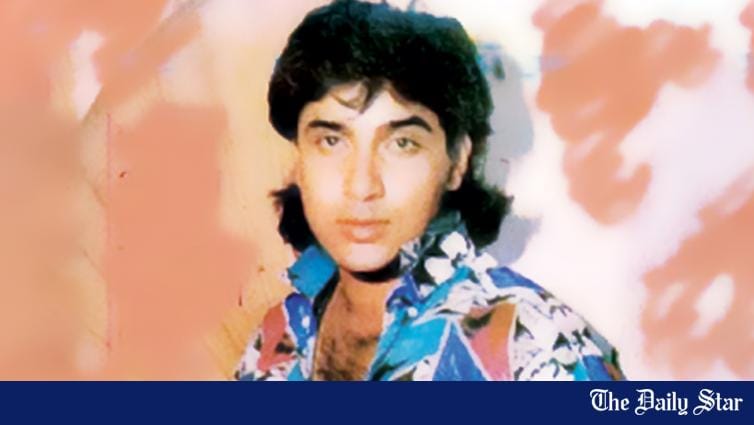Saif
Senior Member
- Joined
- Jan 24, 2024
- Messages
- 17,226
- Likes
- 8,332
- Nation

- Residence

- Axis Group


Shakib Khan and family under media spotlight following Bubly’s revelations
In the wake of recent revelations made by actress Shobnom Bubly, Shakib Khan and his family find themselves thrust into the limelight, facing heightened public scrutiny over their personal affairs. Bubly's disclosures have reignited discussions about Khan's past relationships, prompting a closer...
Shakib Khan and family under media spotlight following Bubly's revelations
Shakib Khan and family under media spotlight following revelations by Bubly

Photo: Collected
In the wake of recent revelations made by actress Shobnom Bubly, Shakib Khan and his family find themselves thrust into the limelight, facing heightened public scrutiny over their personal affairs. Bubly's disclosures have reignited discussions about Khan's past relationships, prompting a closer look at the actor's private life.
In a recent interview, actress Shobnom Bubly claimed, "Legally, I am still Shakib Khan's lawful wife." She disclosed details about her relationship with Shakib Khan and the time they spent together, particularly highlighting the challenges faced in bringing up their child. However, her revelations have stirred controversy within Shakib Khan's family and the wider community.
Due to this, Bubly has been informed that she should refrain from visiting Shakib's house or office in the name of their son Shehzad to avoid any unpleasant circumstances.
Regarding this matter, the actress stated, "I go to that house only when invited. Whether to visit his house or not, whether to be accepted or not, it's not just Shakib Khan's decision, it's also my decision. Because, we have a child, and the safety of my child comes first to me. I will never leave my child alone anywhere."
Bubly also spoke out, stating her intention to address the issue directly with Shakib Khan. She emphasised the need for mutual respect and proper conduct during public appearances and media interactions, indicating her readiness to provide relevant information when necessary.
Responding to the media frenzy, members of Shakib Khan's family have expressed their discontent, with some contemplating legal action against those spreading what they perceive to be unfounded claims.
Meanwhile, Bubly has stood by her statements, reaffirming her commitment to honesty and integrity.
"I have not made any false statements about our relationship so far," remarked Bubly. "I am open to any challenge in this regard. What benefit would I gain from making false claims? My reputation is established by my own efforts. My son, Shehzad, is my pride, and my family's love and support mean everything to me."
As discussions surrounding Shakib Khan's personal life continue to dominate headlines, his family is reportedly planning to host a wedding ceremony this year, aiming to put an end to ongoing speculation and controversy.
Shakib Khan and family under media spotlight following revelations by Bubly
Photo: Collected
In the wake of recent revelations made by actress Shobnom Bubly, Shakib Khan and his family find themselves thrust into the limelight, facing heightened public scrutiny over their personal affairs. Bubly's disclosures have reignited discussions about Khan's past relationships, prompting a closer look at the actor's private life.
In a recent interview, actress Shobnom Bubly claimed, "Legally, I am still Shakib Khan's lawful wife." She disclosed details about her relationship with Shakib Khan and the time they spent together, particularly highlighting the challenges faced in bringing up their child. However, her revelations have stirred controversy within Shakib Khan's family and the wider community.
Due to this, Bubly has been informed that she should refrain from visiting Shakib's house or office in the name of their son Shehzad to avoid any unpleasant circumstances.
Regarding this matter, the actress stated, "I go to that house only when invited. Whether to visit his house or not, whether to be accepted or not, it's not just Shakib Khan's decision, it's also my decision. Because, we have a child, and the safety of my child comes first to me. I will never leave my child alone anywhere."
Bubly also spoke out, stating her intention to address the issue directly with Shakib Khan. She emphasised the need for mutual respect and proper conduct during public appearances and media interactions, indicating her readiness to provide relevant information when necessary.
Responding to the media frenzy, members of Shakib Khan's family have expressed their discontent, with some contemplating legal action against those spreading what they perceive to be unfounded claims.
Meanwhile, Bubly has stood by her statements, reaffirming her commitment to honesty and integrity.
"I have not made any false statements about our relationship so far," remarked Bubly. "I am open to any challenge in this regard. What benefit would I gain from making false claims? My reputation is established by my own efforts. My son, Shehzad, is my pride, and my family's love and support mean everything to me."
As discussions surrounding Shakib Khan's personal life continue to dominate headlines, his family is reportedly planning to host a wedding ceremony this year, aiming to put an end to ongoing speculation and controversy.








































